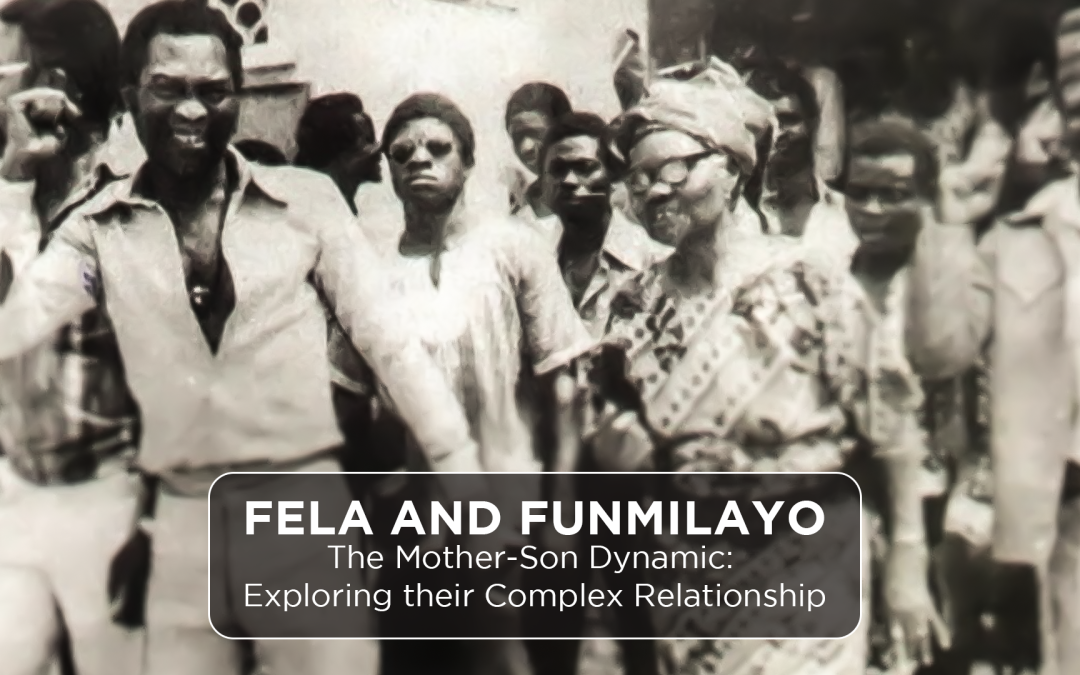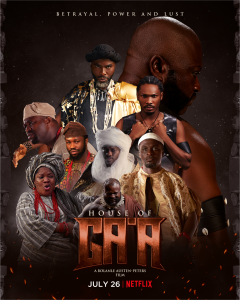In the books of Nigerian history, few relationships are as compelling and multifaceted as that of Funmilayo Ransome-Kuti and her son, Fela Anikulapo-Kuti. This mother-son duo left an indelible mark on the socio-political landscape of Nigeria, intertwining their personal bond with their professional endeavours in activism and music.
Early Life and Influence
Born into a pioneering feminist and political leader’s family, Fela’s early life was steeped in activism. Funmilayo, a formidable advocate for women’s rights and anti-colonialist causes, was not just a mother to Fela but also a mentor. Her unwavering commitment to social justice and equality laid the groundwork for Fela’s political consciousness.
Funmilayo’s Activism and Its Impact on Fela
Funmilayo’s activism wasn’t just a backdrop to Fela’s upbringing; it was the bedrock of his ideological formation. Her relentless fight against colonial rule and gender discrimination in Nigeria inspired Fela, informing his music and his outlook on life. The lessons learned at his mother’s feet were later reflected in his afrobeat music, which became a vehicle for his political messages.
Musical Beginnings Under a Matriarch’s Shadow
Fela’s early musical career can’t be discussed without acknowledging Funmilayo’s influence. Her activism provided a rich narrative for Fela’s lyrics, encouraging him to use his music as a form of political expression. This blending of music and activism would define Fela’s career, making him not just a musician but a political revolutionary.
Collaboration and Mutual Admiration
Despite their differing methods, Funmilayo and Fela shared a deep mutual admiration and respect. Fela’s music often celebrated his mother’s legacy, and Funmilayo, in turn, supported her son’s unconventional approach to activism through music. Their collaboration was a testament to their shared vision for a free and just Nigeria.
Funmilayo’s Role in Fela’s Political Awakening
Funmilayo played a critical role in Fela’s political awakening. Her discussions on colonialism, African identity, and the importance of cultural heritage helped shape Fela’s worldview. This influence is evident in Fela’s music, which often critiqued the Nigerian government and championed Pan-Africanism.
Supporting Each Other’s Causes
The duo frequently supported each other’s causes. Funmilayo’s activism benefited from Fela’s growing popularity, while Fela’s music was enriched by his mother’s activism. This symbiotic relationship showcased the power of their combined efforts in fighting for societal change.
Shared Struggles, Shared Strengths
Their shared struggles against political injustices further bonded Funmilayo and Fela. Both faced government persecution for their activism, but these challenges only strengthened their resolve and commitment to their causes. Their shared experiences underscored the depth of their relationship, rooted in mutual respect and shared ideology.
Conflict and Disagreements
However, their relationship wasn’t without its conflicts. Generational and ideological differences occasionally led to disagreements. Fela’s lifestyle, especially his unconventional marital arrangements and his drug use, was a source of concern for Funmilayo. Yet, even in disagreement, their mutual love and respect remained evident.
Generational and Ideological Differences
The generational gap between Funmilayo and Fela sometimes led to ideological clashes. Funmilayo’s more traditional views on family and society contrasted with Fela’s radical ideas. These differences, however, also facilitated a dynamic exchange of ideas, enriching their perspectives.
Fela’s Controversial Lifestyle and Funmilayo’s Reactions
Fela’s controversial lifestyle, particularly his outspokenness and his advocacy for polygamy, tested their relationship. Despite her concerns, Funmilayo ultimately respected Fela’s choices, understanding that his lifestyle was an extension of his broader challenge to societal norms.
Public Perception vs. Private Realities
The public perception of their relationship often overlooked the complexities and depth of their bond. Despite their disagreements, privately, Funmilayo and Fela maintained a strong connection, united by their shared goals and mutual admiration.
Legacy and Lasting Influence
The legacy of Funmilayo and Fela’s relationship transcends their individual accomplishments. Together, they symbolize the power of familial bonds in the pursuit of social change. Their lives continue to inspire new generations of activists and artists around the world.
Funmilayo’s Legacy Through Fela’s Music
Fela’s music remains a vibrant tribute to Funmilayo’s legacy. Through his songs, Fela continued to advocate for the causes his mother championed, ensuring her spirit lived on in his music and the hearts of his listeners.
The Enduring Spirit of Resistance
The spirit of resistance that Funmilayo and Fela embodied continues to influence contemporary movements. Their lives remind us of the importance of standing up for justice and equality, regardless of the personal cost.
Lessons from Their Lives
The story of Funmilayo and Fela teaches us about the power of conviction, the importance of cultural identity, and the enduring strength of family ties in the face of adversity. Their legacy is a testament to the impact one family can have on their society and the world.
Conclusion
The complex relationship between Funmilayo and Fela Kuti is a fascinating study of how personal bonds can intersect with and enhance public activism. Despite the challenges, their mutual admiration and shared commitment to social change forged a legacy that continues to resonate. Their lives remind us of the enduring power of love, music, and activism in the fight for a better world.
FAQs
- How did Funmilayo influence Fela’s music? Funmilayo’s activism and political beliefs deeply influenced Fela’s music, encouraging him to use his platform to address social injustices.
- Did Funmilayo and Fela always agree on political strategies? No, they had their differences, especially regarding Fela’s lifestyle and approach to activism, but they shared a common vision for Nigeria’s future.
- What was Funmilayo’s reaction to Fela’s lifestyle choices? While Funmilayo had concerns about Fela’s lifestyle, she ultimately respected his autonomy and continued to support him.
- How did the public perceive Funmilayo and Fela’s relationship? Publicly, their relationship was sometimes misunderstood, but those close to them knew of their deep mutual respect and shared ideological commitment.
- What can contemporary activists learn from Funmilayo and Fela? Their lives teach the importance of resilience, the power of using one’s platform for change, and the impact of familial support in activism.


